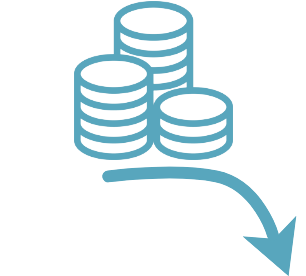Finland
-
Finland has a long tradition in non-formal adult education, and provision is available nationwide. Non-formal adult education institutions include adult education centers, folk high schools, learning centers, sports training centers, and summer universities. Participation in adult learning is higher than the European average, and there is currently an increased focus on basic skills.
Finland country reports
Finland 2024-2025
Download category as PDF-
National basic skills badges introduced in Finland
Kansanvalistusseura sr. (Kvs), the Finnish Lifelong Learning Foundation, and the Finnish Adult Education Association (FAEA), reported that there have been many developments in adult learning and education (ALE) in Finland in 2024-2025.
One of the main novelties is the Digital Service Package for Continuous Learning, scheduled for launch in early 2026. FAEA has participated in the planning of the new platform, which brings together information and services that support lifelong learning in Finland. Its purpose is to make education more accessible for working-age adults and facilitate smoother career transitions by providing comprehensive information on learning opportunities, available funding, and guidance for different life situations. The service specifically supports the development of skills among the working-age population. The platform is developed by the Continuous Learning and Employment Service Centre (JOTPA), a joint initiative of the Finnish education and economic ministries, funded by the EU’s Recovery and Resilience Facility (RFF).
Another key development is the launch of national basic skills badges in 2024. The KAPOS Basic Skills Badges are digital credentials that recognise competences gained through non-formal adult education. Targeted at adults needing support with essential skills, they aim to improve access to employment and further education by making basic skills visible and offering alternative ways to demonstrate competencies.
In total, 32 badges have been introduced, covering key areas such as literacy, numeracy, digital competences, and workplace skills. The badges are an important step toward more inclusive and flexible recognition of learning outcomes in Finland’s ALE system.Kvs coordinated the “Year of Sivistys” (Year of Bildung), nominated by the Ministry of Education and Culture. There were more than 200 events organised within the theme year. The six main themes of the year were sustainable future, equality, science, arts and culture, literacy and lifelong learning. Over 200,000 participants took part in the events of the year, which also increased the visibility of non-formal adult learning in Finland.
Despite these new developments, the overall situation of the Finnish non-formal adult education sector has slightly deteriorated because of a large reduction in state funding during this period.
Skills dimension
According to the Finnish members, the European Union of Skills places too strong emphasis on the working-age population, overlooking a more holistic perspective on skills. This narrow focus risks limiting the growth of personal and social competences that extend beyond employability. Skills should not be viewed solely as individual assets but as an important part of social interaction.
The organisations believe that the New Agenda for Adult Learning, with its more holistic approach, should play a central role in shaping future education policies. However, skills discussion may have some positive implications if it results in greater cooperation between non-formal education and vocational education and training sectors.
AI in adult learning
According to Kvs and FAEA, artificial intelligence (AI) is integrated into multiple dimensions of the work in the Finnish adult education organisations.
As society and the labour market continue to evolve rapidly due to technological change, the Finnish members consider it essential for adults to understand and use AI – as a support tool for personal learning, but also to use at work. Adult education institutions organise teaching about AI and use it to produce various materials. AI also plays a growing role in guidance and counselling.
AI has also been incorporated into the new Digital Service Package for Continuous Learning, ensuring that digital innovation remains a core component of Finland’s adult education system. The Finnish members have used AI in policy work as well. For instance, when preparing a statement for the Finnish Parliament’s Education and Culture Committee on funding for non-formal adult learning and education, AI tools were used to synthesise a large mass of policy texts.
Participation in decision-making
Both Finnish members are actively engaged in the national decision-making process on adult learning and education.
Representatives from several civil society organisations, including Kvs, participate in the National Commission for Sustainable Development - an influential forum that brings together key societal actors. The Commission works to integrate the strategic objectives of sustainable development into national policies.
Kvs and FAEA have also contributed to several consultation processes and policy discussions. FAEA has issued multiple statements concerning financial cuts to the non-formal adult education sector, while both KVS and FAEA took part in consultations on the new finance management system organised by the Ministry of Education and Culture.
FAEA actively participated in the consultation on the new digital competence learning path organised by JOTPA (the Continuous Learning and Employment Service Centre) and attended stakeholder forum meetings, which provided a valuable opportunity to influence upcoming legislation.
In addition, both FAEA and Kvs contributed to discussions within the Education and Culture Committee of the Finnish Parliament, particularly regarding the financial situation of the non-formal adult education sector and the Year of Sivistys (Bildung) in 2024.
The Finnish members consider that learners don’t generally have opportunities to engage actively in policy-making processes, nor are their views and concerns taken directly into account. They can influence indirectly through the adult education organisations.
Finnish members' view on the PIAAC results
Kvs and FAEA welcome Finland’s strong performance in the latest Survey of Adult Skills (PIAAC) conducted by the OECD. They confirm the country’s high level of adult competences. However, they express concern about the ability to maintain these achievements in the future, given the recent large funding cuts in the non-formal adult education sector.
They also highlight that more than 300.000 Finns still have low basic skills, highlighting the need for continued efforts to support this group through adult learning.
Funding of adult education
The funding situation of non-formal adult education has significantly deteriorated in Finland in 2024-2025. Funding for non-formal adult education has been cut by about 14% due to the poor economic situation of the Finnish state. These funding changes are linked to Finland's growing debt, geopolitical shifts, and a new social and healthcare reform. This shift in priorities and financial considerations could potentially reshape the direction of adult education policy in the country.
Additionally, continuing education for teachers in liberal adult education institutions was reduced by €14.6 million, which was almost all the funding previously provided by the National Agency for Education
The main funding sources of ALE in Finland are:
- Project funding
- Program funding
- Operating grants/structural funding
- Fees paid by individuals
- Contribution paid by employers
Recommendation to the European Commission
According to FAEA and Kvs, there is currently a very narrow understanding of adult learning and education within European Union politics, and this perspective needs to be broadened. Moreover, the rise of far-right has challenged migrant education in many countries. The European Union should actively support and emphasise the importance of migrant education through adult learning and education.
DISCLAIMER ON THE PARTICIPATION IN EDUCATION AND TRAINING DATA: the data focuses on formal and non-formal education and training, excluding guided on-the-job training. Participation is higher when on-the-job training is included. Data coming from sources such as OECD and the monitoring framework of the European Pillar of Social Rights may differ from the presented data.
Finland 2023
Download category as PDFFinland 2022
Download category as PDF-
Developments: New funding and responsibilities for adult education
-
Challenges and plans: Preparation for the year of Bildung 2024 kicks off
Posted: 2022-12-21 / Category: Finland 2022 / Tags: digital skills covid-19
Finland 2021
Download category as PDF-
Developments: New adult education policies coming into force
Posted: 2021-12-21 / Category: Finland 2021 / Tags: migration basic skills digital skills funding CONFINTEA
Finland 2020
Download category as PDF-
Developments: New reform for continuous learning
Posted: 2020-11-23 / Category: Finland 2020 / Tags: sustainable development funding covid-19 european pillar of social rights digital skills
Finland 2019
Download category as PDF-
Finland introduction
Posted: 2020-01-09 / Category: Finland 2019 / Tags: sustainable development -
Recent developments in Finland
Posted: 2020-01-09 / Category: Finland 2019 / Tags: lifelong learning -
Links to EU and international policy in Finland
Posted: 2020-01-09 / Category: Finland 2019 / Tags: sustainable development -
Challenges and recommendations in Finland
Posted: 2020-01-09 / Category: Finland 2019 / Tags: ageing population














































